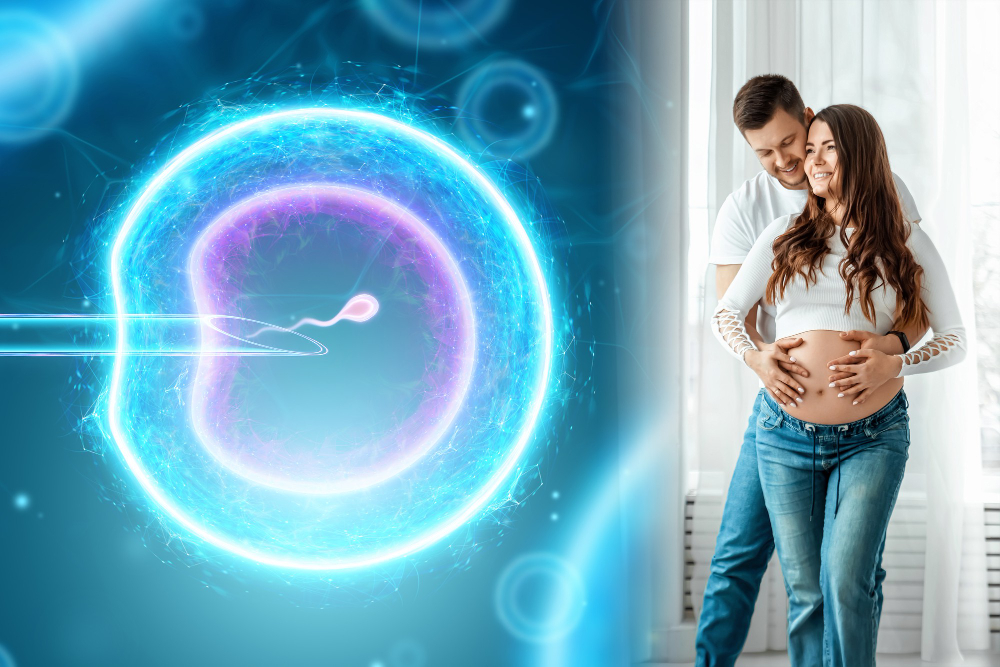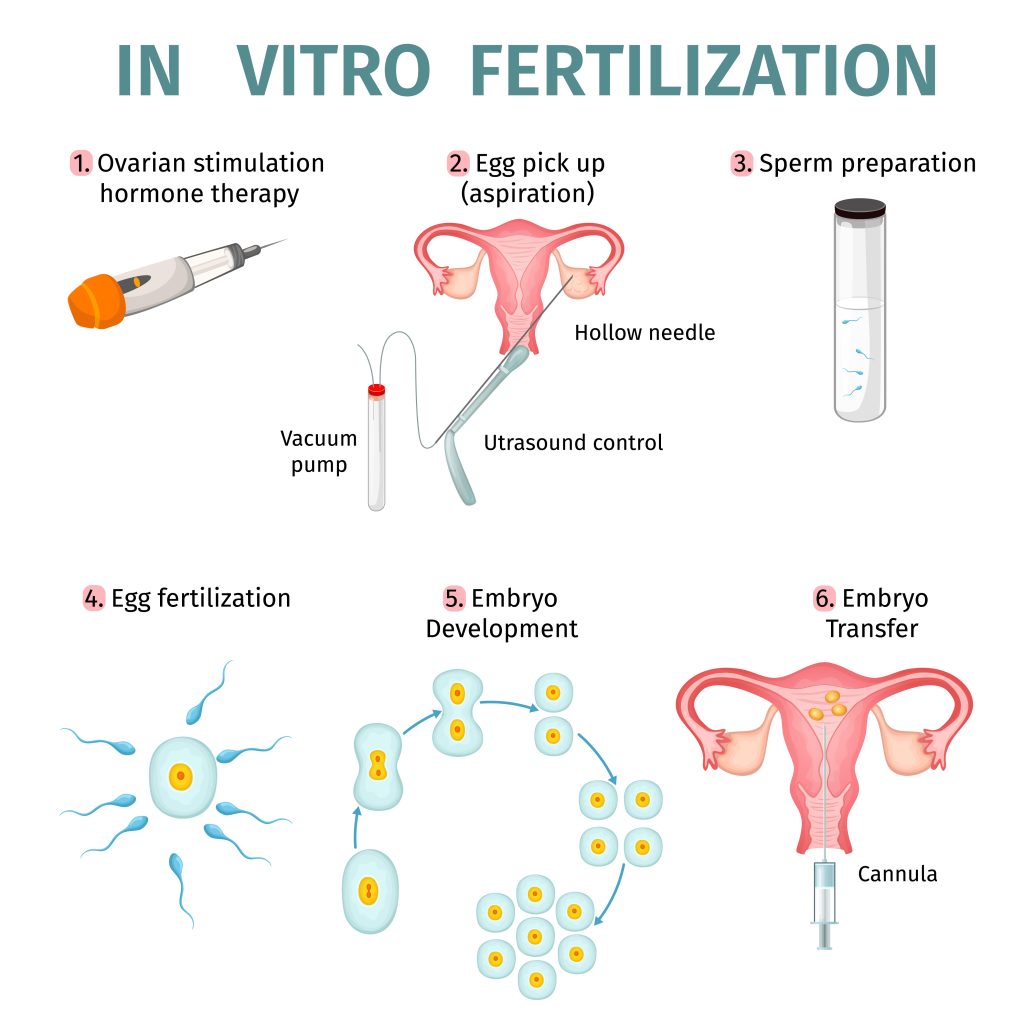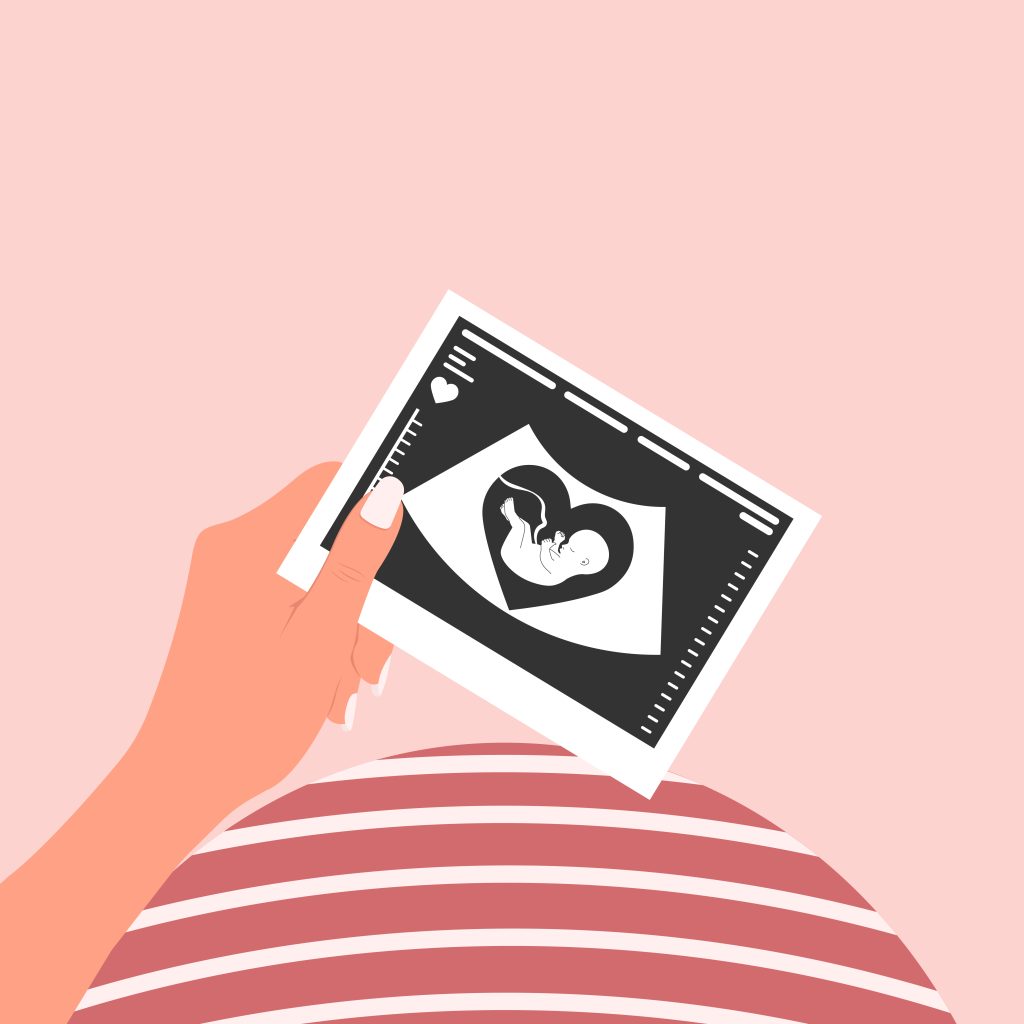IVF | In Vitro Fertilization
IVF is a fertility therapy that involves joining eggs and sperm in a laboratory outside of the body. It is often resorted to by individuals who have difficulties getting pregnant. IVF is a multi-step process that requires expertise and is a successful method of assisted reproductive technology.

IVF is commonly used to treat:
- Older women with fertility issues
- Women who have suffered damage or obstruction in their fallopian tubes.
- Women with endometriosis
- Low sperm count or blockage can result in male infertility.
What is IVF?
IVF is a highly effective solution for treating infertility regardless of its underlying reasons. The process involves the retrieval of developing eggs from a woman’s ovaries, which is carried out in a minor procedure while the patient is sedated. Subsequently, the embryologists mix these eggs with sperm retrieved from either the woman’s male partner or a donor in a laboratory setting in order to generate an embryo.
After being created, the embryos will be placed in designated incubators for a period of three to five days. Subsequently, one or more of these embryos will undergo a smooth and uncomplicated procedure, which will transfer them into the woman’s uterus. In the days following the transfer, the embryos will eventually attach themselves to the lining of the uterus in a process called implantation.
After a period of approximately ten days, the woman is required to have a blood test to determine if the fertility process has been successful and if she is genuinely pregnant. It might be necessary to undergo numerous cycles to improve the probability of conception.
What happens during IVF
IVF involves 6 main stages:
- by using medication, your body’s natural menstrual cycle is prevented or inhibited.
- Assisting your ovaries in generating additional eggs- medication is utilized to stimulate your ovaries into producing more than one egg simultaneously.
- To keep track of your advancement and ensure your eggs are fully developed, an ultrasound is performed to assess the growth of the eggs, and medication is administered to aid in their maturation.
- To gather the eggs, a procedure is performed where a needle is inserted through the vaginal opening and into the ovaries to retrieve the eggs.
- In order to fertilize the eggs, they are combined with sperm for a period of several days.
- During the process of transferring the embryo(s), you will have one or two fertilized eggs (also known as embryos) inserted into your uterus.
After the transfer of the embryo(s) into your uterus, you have to wait for two weeks before conducting a pregnancy test to determine the success of the treatment.

What is the duration of the IVF procedure from start to finish?
The process of IVF involves multiple stages and usually takes about four to six weeks to complete. This time frame covers the period between fertility medication administration and pregnancy testing, as well as the retrieval of eggs.
IVF Success Rates
The proportion of IVF procedures that led to the birth of a healthy infant was documented in 2019.
- 32% for women under 35
- 25% for women aged 35 to 37
- 19% for women aged 38 to 39
- 11% for women aged 40 to 42
- 5% for women aged 43 to 44
- 4% for women aged over 44
After the procedure
Following the transfer of the embryo, you may continue with your regular daily routine. Nonetheless, your ovaries may still appear enlarged, and it is recommended that you avoid engaging in strenuous activities that may cause discomfort.
Typical side effects include:
- After the embryo transfer, it is possible for a small quantity of clear or bloody liquid to be discharged as a result of wiping the cervix.
- is a common symptom experienced by women during their menstrual cycle. High levels of estrogen cause an increase in breast tissue development and can make the breasts feel full, swollen, and sensitive. This discomfort usually subsides once estrogen levels decrease after ovulation. However, in some cases, breast tenderness may persist throughout the cycle or even outside of it, causing discomfort in daily life. Women can try wearing a well-fitted supportive bra, applying warm compresses, and taking over-the-counter pain relievers to ease the discomfort.
- Mild bloating
- Mild cramping
- Constipation
If you experience substantial discomfort following the embryo transfer, get in touch with your physician. They will assess you for any complications, including infections, ovarian torsion, and extreme ovarian hyperstimulation syndrome.
Risks of IVF
IVF may not always lead to a successful pregnancy and can put a strain on both the body and emotions. It is recommended that individuals receive counseling to receive support during the IVF experience.
In addition, several potential health hazards are present, such as:
- Adverse reactions stemming from the medication administered throughout medical intervention, such as occurrences of sudden heat waves and persistent pain in the head.
- Having multiple births, such as twins or triplets, can pose a risk to both the mother and the children.
- An ectopic pregnancy occurs when the fertilized egg attaches to the fallopian tubes instead of the uterus.
- In IVF, there is a condition known as ovarian hyperstimulation syndrome (OHSS), which occurs when the ovaries respond excessively to the medications administered.
IVM vs. IVF
In traditional IVF, the eggs are harvested after they have fully matured. However, IVM treatment is distinct as it involves in vitro maturation before retrieval, making it comparable but not entirely the same as IVF.
During the process of IVM, the eggs are collected before they reach full maturity. Unlike in IVF, there is no requirement for a “trigger shot” in IVM. Instead, the collected eggs are treated within a laboratory environment until they become fully matured. Afterward, the remaining steps of the IVF method are applied.
Results

Your doctor will conduct a pregnancy test on a sample of your blood roughly 12 days to two weeks after the egg retrieval procedure to determine if you are pregnant.
- In case of pregnancy, a physician will recommend a professional in obstetrics or another expert in pregnancy related care for antenatal medical attention.
- If you are not expecting a baby, you will discontinue using progesterone and may get your menstruation within the next seven days. If you do not experience menstruation or observe unusual bleeding, you should notify your doctor. If you desire to embark on another cycle of in vitro fertilization (IVF), your doctor may recommend some measures to increase your likelihood of conceiving through IVF.
Treatment in Türkiye:
The medical staff of surgical teams, doctors and consultants in Rehab Türk can provide the best treatment options and free consultations – by striving to keep abreast of the latest medical technologies and methods.
